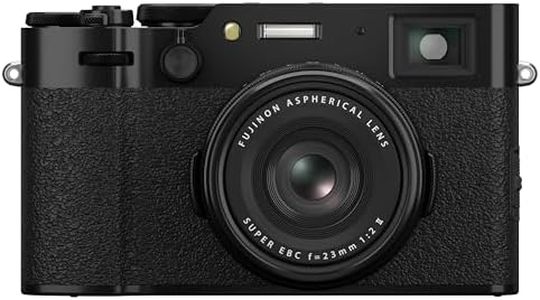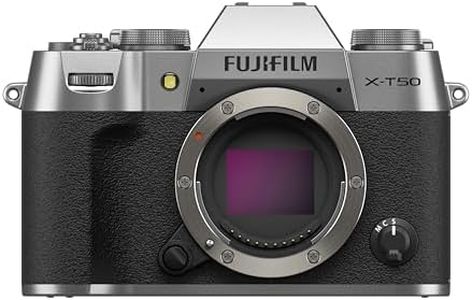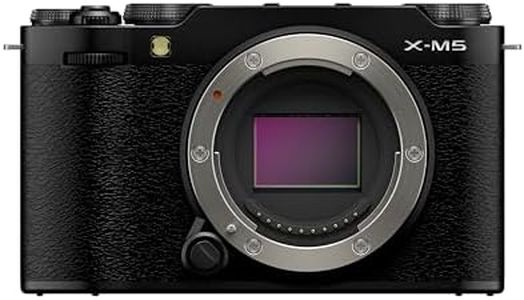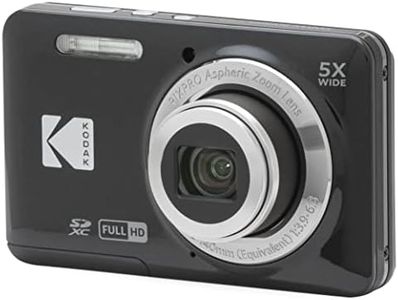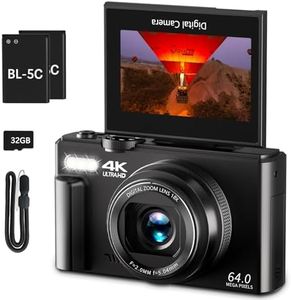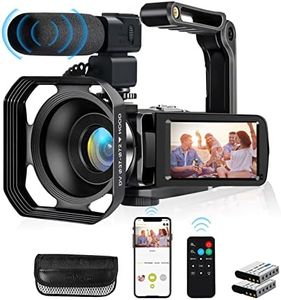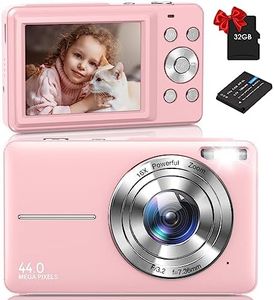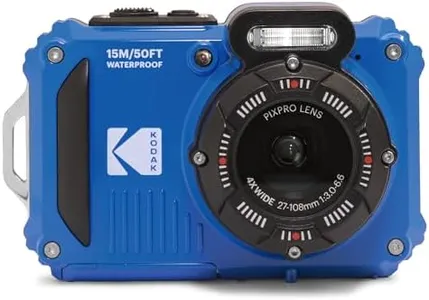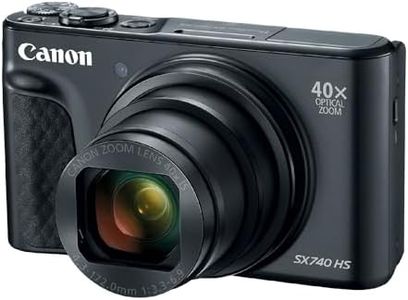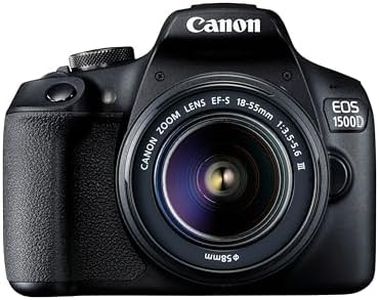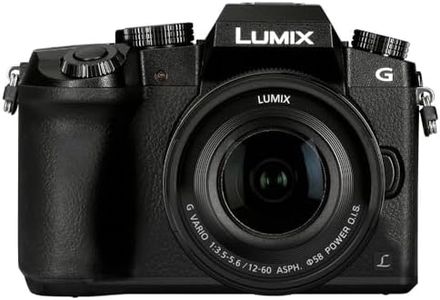We Use CookiesWe use cookies to enhance the security, performance,
functionality and for analytical and promotional activities. By continuing to browse this site you
are agreeing to our privacy policy
10 Best Digital Camera For Beginners
From leading brands and best sellers available on the web.By clicking on a link to a third party's website, log data is shared with that third party.
Buying Guide for the Best Digital Camera For Beginners
Choosing your first digital camera can feel overwhelming, but a smart approach is to identify what you want to photograph and how you plan to use your camera. For beginners, it's best to look for a camera that balances simplicity with enough features to help you learn and grow. Prioritize ease of use, versatility, and some room to experiment, so you can develop your skills without being bogged down by complexity.Sensor SizeThe sensor is the part of the camera that captures light to create images. A larger sensor usually means better images, especially in low light, and more control over background blur (for portraits, for example). Cameras may have full-frame, APS-C, Micro Four Thirds, or smaller sensors. For beginners, APS-C and Micro Four Thirds are a great middle ground: better quality than tiny sensors in basic compacts but usually more affordable and portable than full-frame. If you mostly shoot photos of friends, travel, or everyday life, and want decent image quality, look for a camera with at least an APS-C or Micro Four Thirds sensor. Super compact and phone-like cameras may have even smaller sensors, which can be fine for snapshots, but will limit creative options as your skills grow.
MegapixelsMegapixels refer to the resolution of the images your camera can produce. More megapixels sound better, but for most beginners 16–24 megapixels are more than enough for printing photos, sharing online, or making small/medium-sized enlargements. Higher megapixel counts become important if you want to crop images heavily or print very large photos. Instead of chasing the highest number, focus on using good technique and lighting, as these have a bigger impact on image quality.
Lens SystemThe lens determines how much of the scene is captured and how much light gets in. Beginner cameras come as 'fixed lens' (built-in lens) or 'interchangeable lens' (you can swap lenses for different needs). Fixed lens cameras are easier for beginners and travel, while interchangeable lens systems offer greater creative potential as your interests develop. If you're interested in portraits, landscapes, or learning different shooting styles, an interchangeable lens system is the way to go. If you just want to take nice everyday photos without fuss, a fixed lens camera can be perfect.
Ease of Use (Controls and Menu)Easy-to-navigate menus and simple controls are important for beginners. Some cameras have dedicated guide modes or 'scene' presets that help you pick the best settings for different situations. When browsing cameras, look for intuitive button layout, clear menu systems, and if possible, beginner-friendly modes. If you find a camera confusing to operate, you'll be less likely to use it—and practice is key to improving your skills.
Autofocus PerformanceAutofocus is how quickly and accurately the camera can focus on your subject. Good autofocus makes it easier to capture sharp pictures, especially when things are moving (kids, pets, sports). For casual photos and portraits, most beginner cameras have decent autofocus. If you plan to photograph action or fast movement, choose a camera praised for fast and reliable autofocus, especially for tracking moving subjects.
Viewfinder and ScreenHow you compose your shots is important. Some cameras have only an LCD screen, while others offer an electronic (or optical) viewfinder you can look through. A tilting or touch-sensitive screen can make shooting from difficult angles easier. For most beginners, a good quality LCD that’s big and bright enough is fine, but a viewfinder can be helpful in bright sunlight and for a more traditional photography experience. Consider how and where you’ll shoot most (indoors, outdoors, on the go) when deciding which you prefer.
Size and WeightA camera should be easy to carry, so you actually use it! Bigger cameras tend to feel sturdier and may have more buttons, but smaller ones are easier to take everywhere. If you want a camera for travel or daily use, prioritize a lightweight, compact design. But if you're comfortable with a larger camera and want more advanced features as you grow, a slightly bigger model may be a good investment.
Connectivity (Wi-Fi/Bluetooth)Many cameras let you transfer photos directly to your smartphone or computer with Wi-Fi or Bluetooth. This makes it much easier to share images quickly. If sharing on social media or backing up without cables matters to you, check that the camera has these options and that the companion app is user-friendly.
